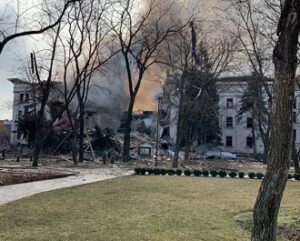
What harm did they do?
Amid the pandemic and a war that, although it was in a region, is becoming planetary, by the measures and positions, now from the Hague court that asks for an immediate ceasefire.
is becoming planetary, by the measures and positions, now from the Hague court that asks for an immediate ceasefire.
The ideological argument does not justify acts of barbarism neither the right nor the left, the growing polarization creates a climate of war where even humanitarian attitudes, and this includes the Pandemic, cannot be neglected, otherwise we will prolong its effects.
All humanitarian thinking wants a return to normality, which should be one that no longer takes us to the hustle and bustle of everyday life, unconcerned with injustices and calamities, including the Burnout Syndrome that Byung Chul Han talks about in his book.
It is also not about procrastinating people and society, since there are social and economic problems that require an attitude of work and community effort.
The misguided reasoning: “here it is done and here it is paid”, hides the cruelty behind attitudes that do not respect the humanitarian and health values necessary for a safe return to what is in fact a regenerated humanism as we try to develop in this week’s posts (in photo Mariupol´s Theatre).
This reasoning is also common in the religious environment, someone is rewarded because “it is good” and “punished” because it is bad, what the children and civilians in Ukraine did badly, the elderly people, doctors and nurses who died in the Pandemic and finally those who are still dying.
For those who make this reasoning that is not religious, God favored or punished someone, I remember the passage in which the Galileans go to Jesus saying that Pilate had killed people and mixed their blood with the sacrifices that were offered to false gods.
Seeing the reasoning “God punished them”, Jesus answers them (Lk 13:2): “Do you think that these Galileans were more sinful than all the other Galileans, because they suffered such a thing? 3I tell you no. But if you do not convert, you will all die in the same way”, to say that cruelty and sin can spread cruelty throughout the world.
He cites the tragedy known at the time, the death of workers who worked in the Tower of Siloam and explains that they were victims of the tragedy and were just workers.
Condemning cruelty, preventing health and humanitarian attitudes with actions is to avoid these evils.









